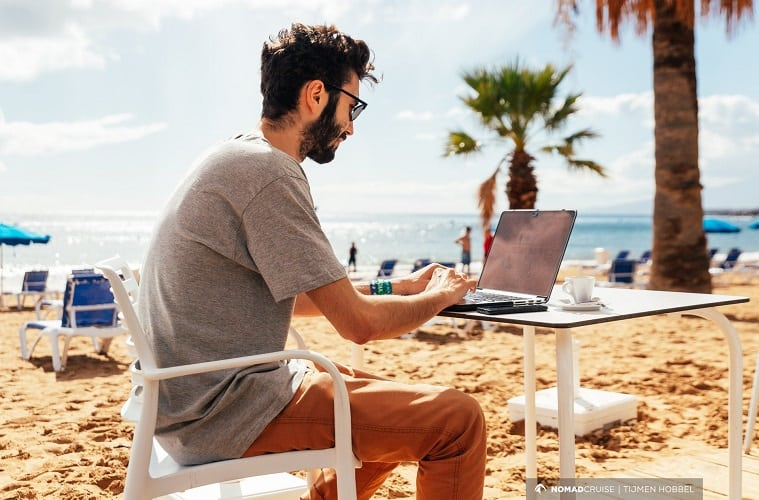There could be a lot of money in being a ‘location independent’ worker. According to a FlexJobs survey on digital nomads, or remote professionals who typically travel as they work, 18% reportedly make over $100,000 a year. Meanwhile, 22% make around $50,000 to $99,000, as compared to the average US worker who made $46,600 in 2018. The ability to choose where you work, which is often in countries with a low cost of living, only adds to the savings funds of digital nomads.
When you make this much dough, you have to learn how to protect it. This is especially true when you’re in a foreign country. To help you out, we list some crucial tips to keep in mind below:
Open a separate bank account for your travels
International banking transactions can be heavy on the pocket especially when you’re travelling long-term. To protect your money, it’s best to find banks that offer accounts with low transaction fees. It’s also a good idea to opt for banks that have a large presence in your destination, or at least excellent online and voice customer service for international clients. They’ll be able to give you immediate support should you need it, for instance, if your credit card gets stolen.
Protect your cash and cards
To cunning thieves, you will look like a vulnerable and promising target as a foreigner with money, but you can deter them by carrying an anti-theft bag. Smarter Travel explains that these are designed with security features, like reinforced straps that make the bag difficult to snatch, slash-proof fabric, and locking zippers. They are a bit of an investment, but ultimate worth the hefty price tag if it means protecting your valuables from pickpockets and thieves. Another simple but effective idea is to wear a waist belt you can keep close to you at all times.
Keep your personal and banking information secure wherever you go
Be vigilant with your own personal details, especially if it concerns your banking information. When making in-person purchases with your credit card, for instance, ensure the CVV code is hidden from the staff and other customers. This is the card verification value code, which AskMoney’s post on credit cards, notes is an extra layer of security for your card. This code is used to verify online purchases. If a person has it memorized along with your other details, they can use your card for fraudulent purchases. You can secure it simply by adding a sticker on top of it.
On that note, also secure your data online. VPNs are a good way to protect yourself digitally, but make sure to be vigilant when you connect to public Wi-Fi, especially as a remote worker. These unsecured networks make your computer, and thus your personal information, vulnerable to hackers.
Be aware of skimming and other fraudulent practices
ATM skimming is a scam that we’ve been hearing more of lately. US News’ article on skimming notes that this is when criminals add devices to ATMs that read and save an unwitting individual’s card information. There are other variations of these card scams, like criminals installing micro-cameras that record you as you input your details or fake keyboards on the machine. These fraudulent practices are usually located in high traffic areas, such as travel destinations or city centers.
What you can do is check the card reader and wiggle it to see if it comes loose. Be cautious about the people around you and cover the keypad with your hand as you punch in your details as well. If things look fishy to you, report it to the proper authorities right away. More importantly, opt for cards that have an EMV chip for better security.
Keep your earnings as a digital nomad through these simple practices. Wherever your next destination may be, practice vigilance especially when it concerns your finances.
The 4 Money Safety Tips for Digital Nomads article was first published on Coworkaholic.

